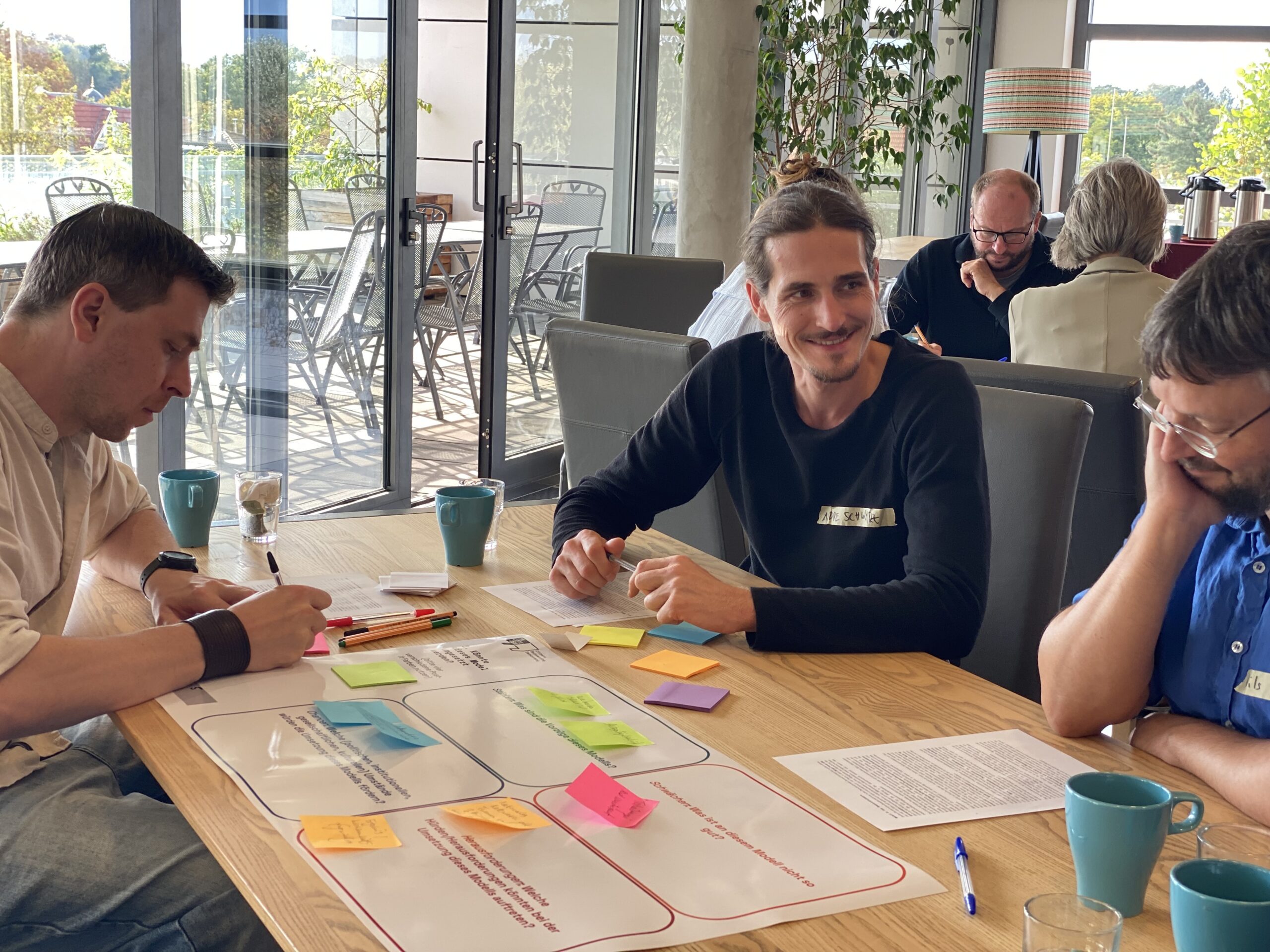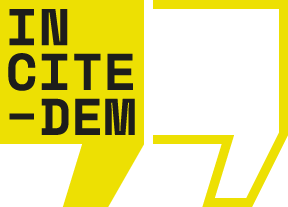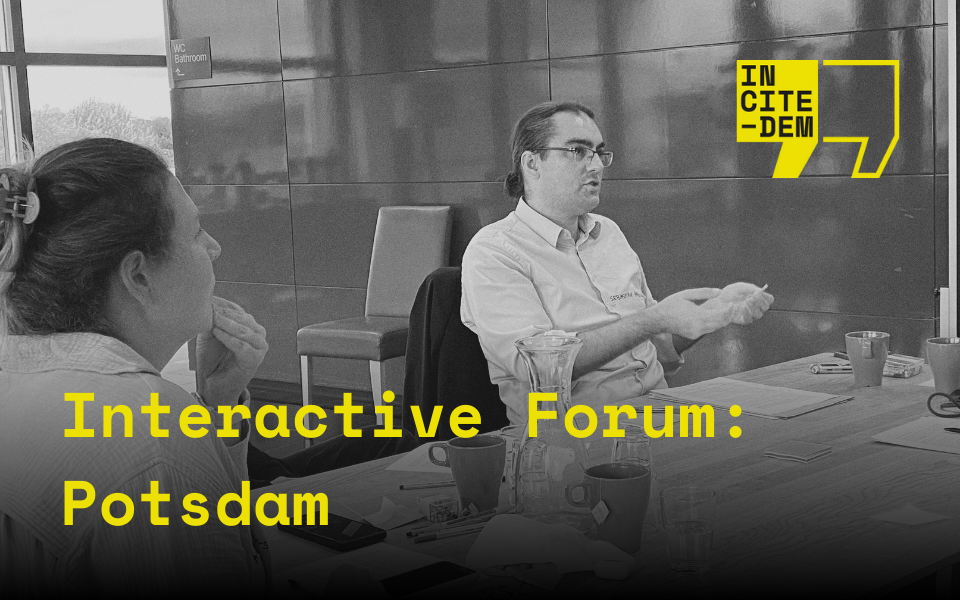How do we design more inclusive and effective participation, whilst ensuring social legtimacy?
This was one of the core questions discussed during our Interactive Forum held in Potsdam on the 11th of September 2025.
In 2024, we developed innovative ideas for democratic participation together with 162 citizens from six countries in six democracy labs ‒ amongst others, also in Potsdam. Over the course of two days, citizens, NGO-experts, policymakers and members of the political administration designed 31 democratic innovations in the six democracy labs. Some of these innovations were similar, or supplemented each other. We grouped these similar innovations into six models.
At the Interactive Forum, we asked 14 participants from local, county and national government administrations as well as politicians, who are involved with integrating and implementing such participatory tools, to evaluate the potential of the innovations developed.
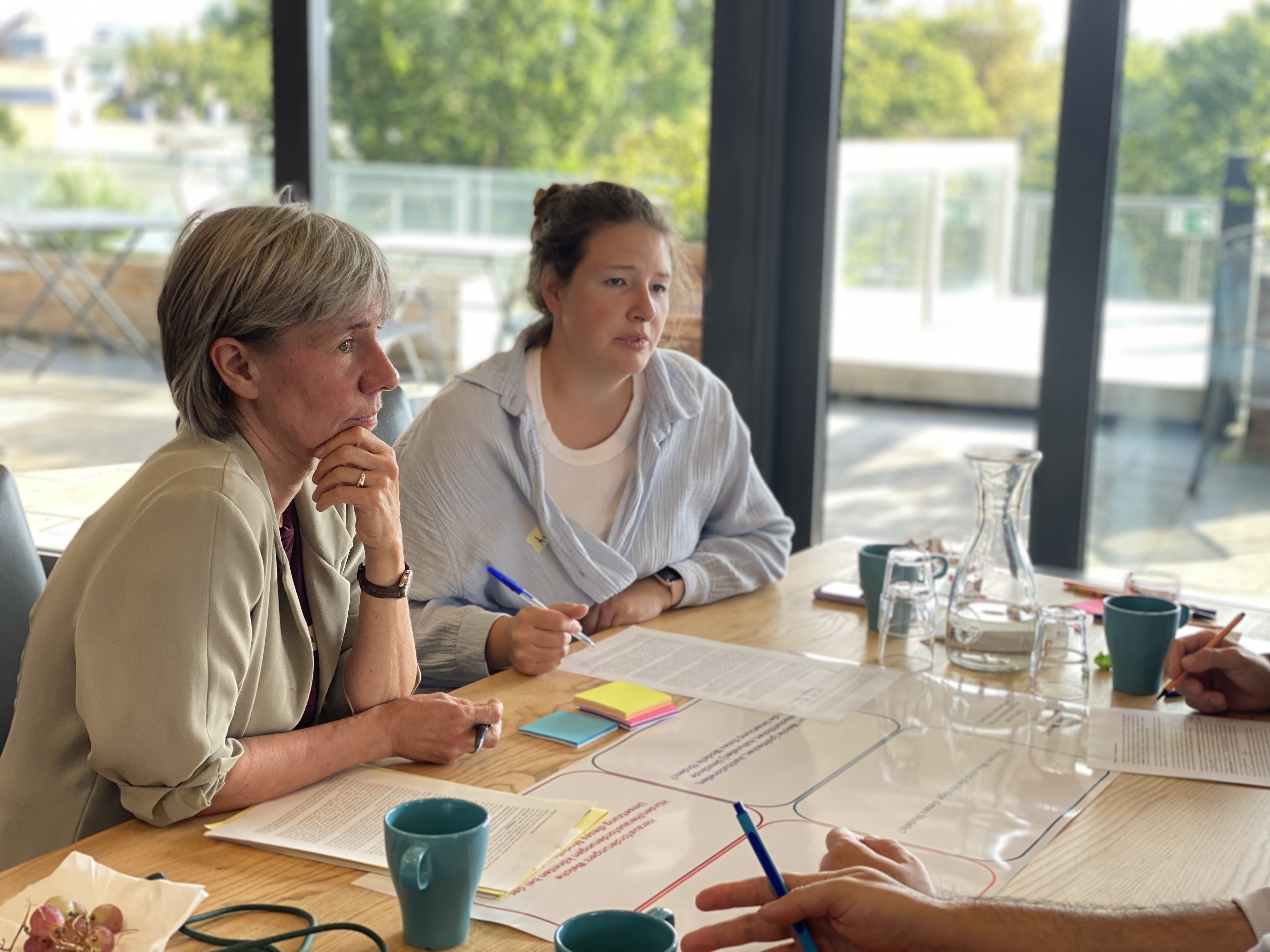
The experts discussed “Neighbourhood Houses”, local community hubs for local democratic engagement; “Permanent Citizen Assemblies” with decision-making capacity; “The Participation Navigation App”, a national digital tool for participatory facilitation and transparency; “The Democracy Allowance”, institutionalised time and space for citizen participation as a national right, “Democracy Laboratories” as spaces for democratic experimentation and learning, and “Inclusive Citizen Consultation”, a hybrid model combining citizen initiatives and AI for policy input.
Some of the experts’ feedback evolved around similar issues across all models. For example, the question how to include the models in representative democracy. How should these models actually be integrated in governance processes and decision-making? How much citizen control and binding decision-making is possible, without undermining representative democracy and legitimate representation?
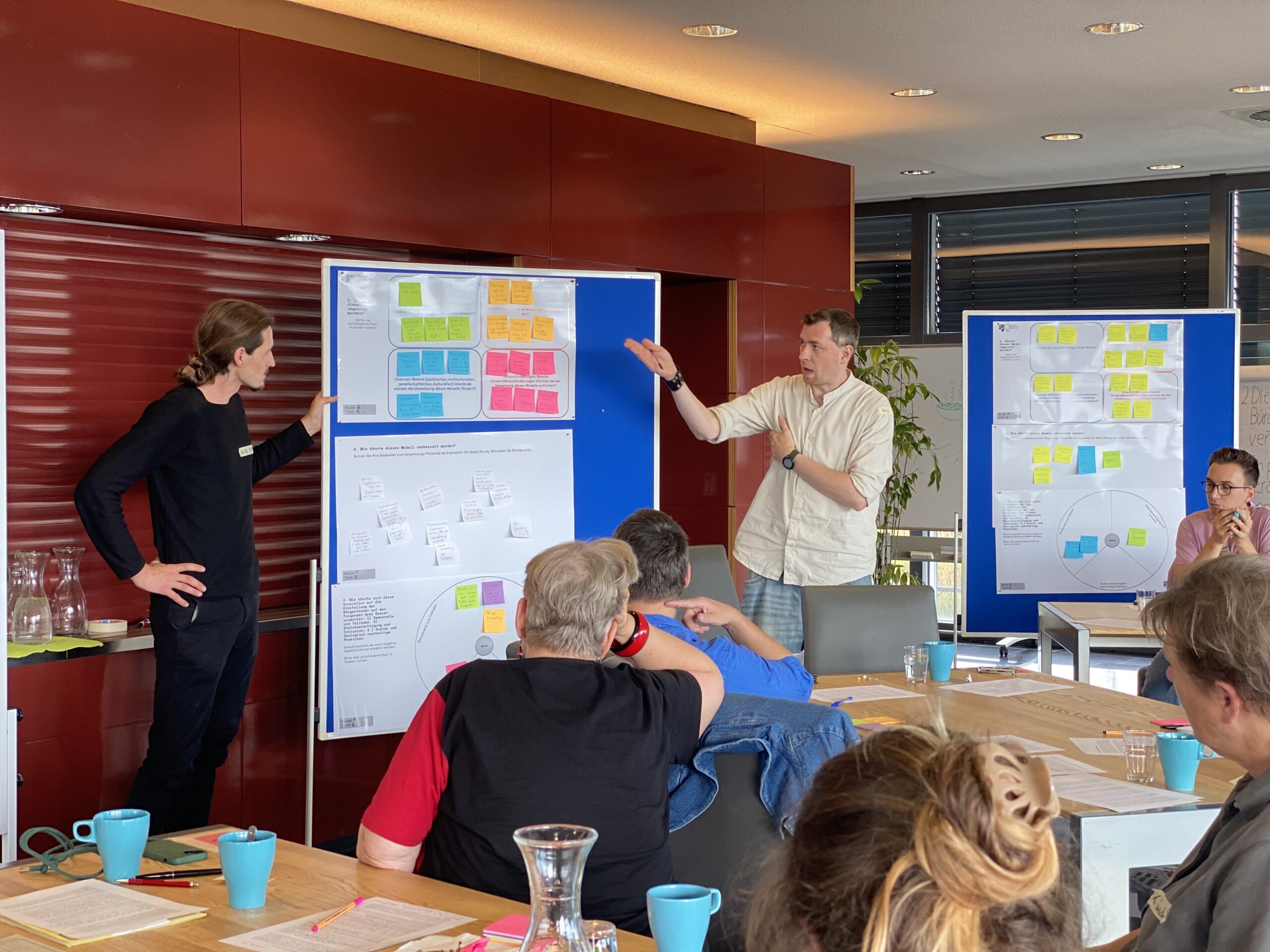
Another topic was how to create more inclusive participation processes, but also secure the participation of everyone or rather avoid the domination of specialised interests or undemocratic ideas. And in that connection, how to secure for these models to secure permanent citizen participation. This is not least also a question of finance, as well as political inclusion – taking us back to the first point raised on institutional integration.
Last, but not least, all these isues affect another repeatedly mentioned topic: the necessity of social legitimation of these models in practise.
